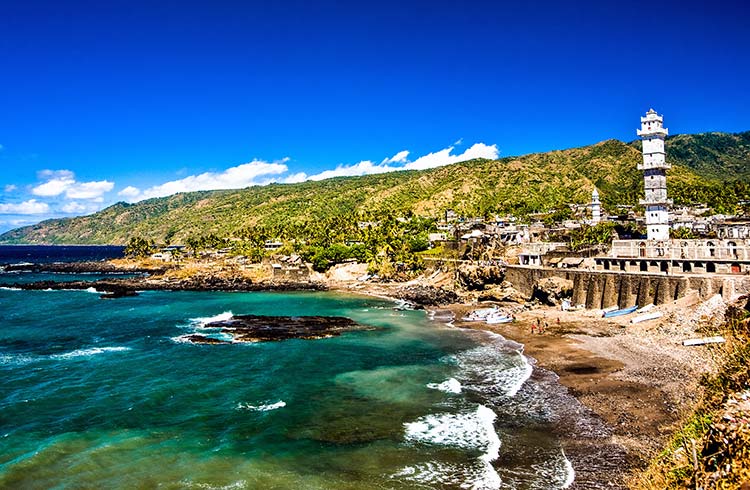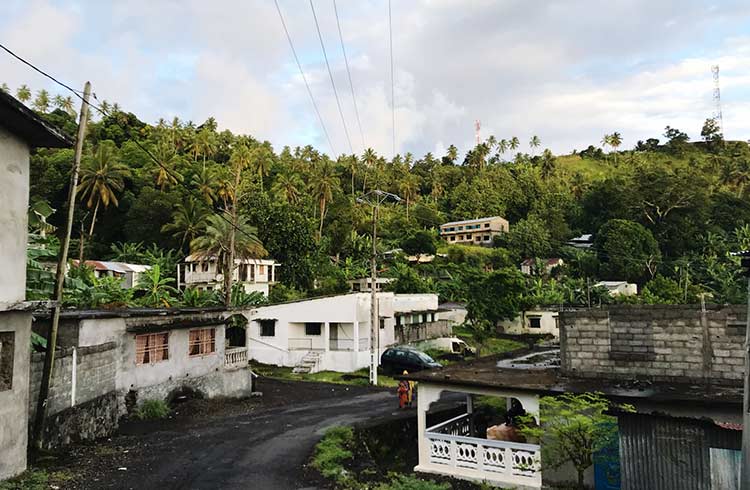Is Comoros Safe? 4 Tips That Travelers Need to Know
There are a few vaccinations and health issues to consider before traveling to Comoros. Once you're there, find out how to get around safely with these tips from our safety expert.
 Photo © Getty Images/John Seaton Callahan
Photo © Getty Images/John Seaton Callahan
Public transport safety in Comoros
The island of Grand Comore has no public transport, aside from buses that run between Moroni and various villages in the morning only. Hitchhiking is the most common way to get around. Sometimes locals will expect a small payment from travelers who hitch a ride.
The European Commission has banned all Air Service Comores flights, with the exception of one aircraft (type LET 410 UVP, with the registration D6-CAM), from operating within the EU due to ongoing safety concerns. You would be wise where possible to use other available airlines or Air Service Comoros aircraft.
There are boats that run from Chindini, on the southern coast of Grand Comore, to Hoani, on the northern coast of Moheli. These boats are small fiberglass fishing in variable condition. They should be taken only on days when the sea is calm, as passengers have been forced to off-load baggage into the sea and rumor has it that some boats have been lost.
However, these boats are generally safe to take on calm days. More convenient are large ferries (two or three per week) from Moroni to Foumboni on Moheli. There is also a larger ferry boat that runs from the east coast of Grand Comore to Anjouan. You should always check for safety equipment and heed the advice of locals.
Diseases in Comoros
Malaria, including cerebral malaria, is prevalent in the Comoros. Sleep under a permethrin-treated mosquito net and talk to your doctor about taking anti-malarial medication to see if it's right for you.
The East African Indian Ocean islands have seen a rise in the cases of chikungunya, a viral dengue-like ailment, and dengue itself. As with malaria, chikungunya and dengue are transmitted by mosquitoes. Make every effort to use repellents, proper clothing, and barriers that discourage/prevent mosquito bites.
Rabies vaccines should be considered for shorter stays for adventure travelers, hikers, backpackers, or rural travelers who are staying more than 24 hours away from a reliable source of vaccine for post-exposure treatment. All bat, carnivore, and other mammal bites or scratches while in Comoros should be taken seriously and post-exposure prophylaxis sought even for those already immunized.
There is a high risk of marine hazards (jellyfish, coral, and sea urchins) as well as travelers diarrhea throughout the country.
Medical facilities are basic and limited on all three islands, and most are private. You should be aware that electricity and water supplies are subject to frequent interruptions, which can affect hospitals and other public services. Medicines and food may not have been safely stored.
You should consider the following vaccinations before arriving in Comoros:
- Hepatitis A
- Hepatitis B
- Rabies
- Malaria
- As needed, booster shots for tetanus-diphtheria and measles.
Cyclone season in Comoros
Comoros is in the cyclone belt, and can be affected by cyclones between January and May.
The Karthala volcano near Moroni on Grande Comore erupts periodically, most recently in January 2007. Although there are no predictions of an imminent eruption, you should check the situation locally before making plans to visit the island.
Politics and coups in Comoros
Political instability and coups are common on the African island nation of Comoros. Find out how the political violence and instability may affect travelers with these tips.
Related articles
Simple and flexible travel insurance
You can buy at home or while traveling, and claim online from anywhere in the world. With 150+ adventure activities covered and 24/7 emergency assistance.
Get a quote
No Comments